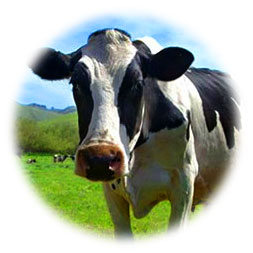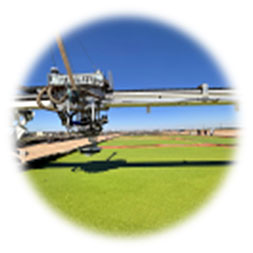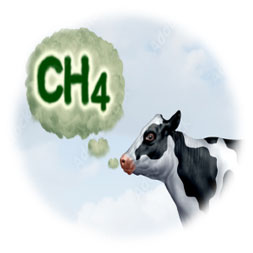About Livestock & Dairy Research
California’s livestock and dairy sectors are foundational to the state’s agricultural economy. Both the dairy and beef sectors in California are essential to feeding the nation and world, ranking respectively as number 1 and 4 as top produced California commodities. These industries supply critical sources of protein and nutrition, support rural economies, and represent a major share of the country’s agricultural exports.
Why this research matters:
California’s dairy and livestock production operations are key to a healthy, secure food system for California, the US, and beyond. These sectors also are major contributors to California’s methane inventory. California’s Senate Bill 1383 calls for a 40% of methane emissions reduction from the livestock and dairy sector from 2013 levels by 2030. This is why OARS invests in cutting-edge research that helps producers reduce methane emissions in safe, practical, and science-driven ways to secure our food production systems while addressing the need to decrease greenhouse gas emissions from the livestock and dairy sectors.
California Dairy & Livestock by the Numbers:
- California is the #1 producer of milk, butter, ice cream, and nonfat dry milk in the U.S.
- The state produces over 41.9 billion pounds of milk annually—more than one-fifth of the national total.
- The California dairy market is valued at $8.13 billion, with $3.2 billion in dairy exports in 2022.
- The California livestock industry was valued at $4.98 billion in 2024.
- The state is home to 600,000 beef cows across approximately 11,000 ranches.
- Beef is California’s 9th most exported product, with $619 million in exports in 2022.
OARS is helping producers lead the way in reducing methane emissions by funding research that is rooted in science and aligned with on-farm realities. This work aims to come up with strategies to mitigate methane emissions while keeping California’s dairy and livestock industries resilient, sustainable, and globally competitive.
Impact
The Office of Agricultural Resiliency and Sustainability has awarded 13 Research grants since 2022 focused on methane reduction in the dairy and livestock operations.
The research is designed to:
- Assess the GHG reduction efficacy of the AMMP and DDRDP Projects deployed in California,
- Support initiatives set forth by the Manure Recycling and Innovative Products Task Force (CDFA - OARS - MRIP),
- Develop a research standard to optimize enteric methane reducing research feeding trials,
- Evaluate the efficacy of viable enteric methane reducing strategies for use in California’s Dairy and Livestock Sectors and,
- Support the livestock and dairy sectors to meet target goals outlined in California’s Senate Bill 1383 to decrease methane emissions from the livestock and dairy sector in California.
Research Funding Opportunities
The California Department of Food and Agriculture (CDFA) supports innovative research to reduce methane emissions in the livestock sector through 3 major programs:



